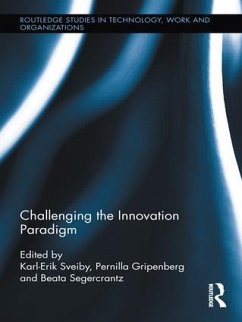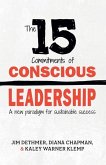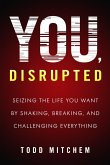Innovation is almost always seen as a "good thing". Challenging the Innovation Paradigm is a critical analysis of the innovation frenzy and contemporary innovation research. The one-sided focus on desirable effects of innovation misses many opportunities to reduce the undesirable consequences. Authors in this book show how systemic effects outside the innovating firms reduce the net benefits of innovation for individual employees, customers, as well as for society as a whole - also the innovators' own organizations. This book analyzes the dominant discourses that construct and reconstruct the assumptions and one-sidedness of contemporary innovation research (generally known as the pro-innovation bias) by focusing on consequences of innovation, distinguishing between intended and unintended as well as desirable and undesirable consequences. Contributors illustrate how both the discourses of innovation and the consequences of innovation permeate all levels of society: in policy discourse, in academic discourse, in research funding, in national innovation systems, in the financial sector, in organizational and work contexts, and in environmental pollution. The volume offers a critical, multidisciplinary, and multinational perspective on the topic, with authors from diverse academic fields examining and making comparisons between a variety of national contexts.
Hinweis: Dieser Artikel kann nur an eine deutsche Lieferadresse ausgeliefert werden.
Hinweis: Dieser Artikel kann nur an eine deutsche Lieferadresse ausgeliefert werden.








